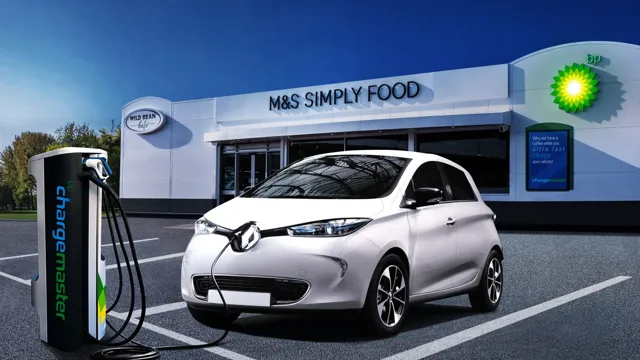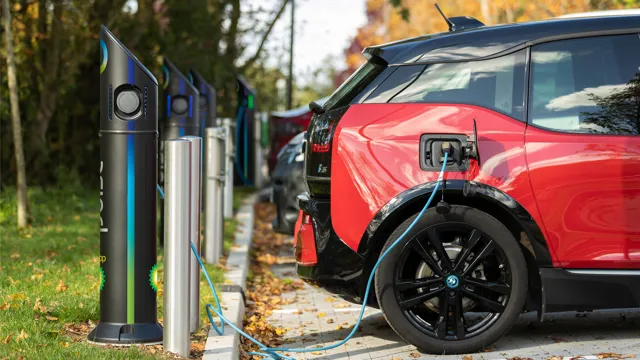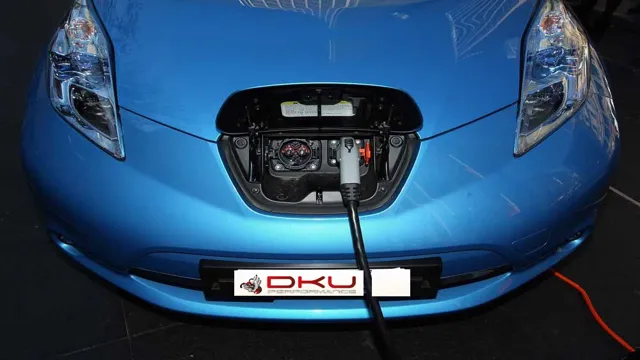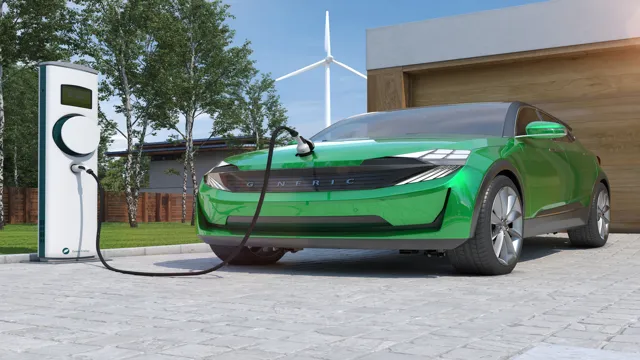Understanding Electric Car Charging as a Taxable Benefit – Everything You Need to Know!
As the world is shifting towards more eco-friendly options, electric cars have become a popular choice for many people. However, with this environmentally conscious decision comes the responsibility of ensuring the car is charged, and as an employer, you may be considering providing charging facilities as a perk for your employees. But, did you know that this could potentially lead to a taxable benefit? As the government encourages the reduction of vehicle pollution, they are also taking steps to ensure that benefits, such as electric car charging, are treated in a consistent and fair manner.
In this blog post, we will explore the tax implications of electric car charging as a taxable benefit and what you need to know as an employer.
Definition of Taxable Benefits
If your employer provides you with free electric car charging at work, it may be considered a taxable benefit. This means that the value of the charging service would need to be included as part of your income for tax purposes. However, the rules around taxable benefits can be complex and vary depending on the specific circumstances.
In general, if the charging is available to all employees and not just a select few, then it may not be considered a taxable benefit. Additionally, if the charging is only available outside of work hours or is only available for business use, then it may also be exempt from taxation. It’s best to consult with a tax professional to determine if electric car charging is a taxable benefit in your specific situation.
Explanation of taxable benefits for employees and employers
Taxable benefits refer to the perks or benefits beyond an employee’s salary that are subject to tax. These benefits can include non-cash items like company cars, free lunches, or housing allowances. These benefits are considered to be additional compensation for an employee, and as such, the value of these benefits is added to the employee’s gross income and is subject to income taxes.
Employers must also pay taxes on these benefits, as they are considered a form of compensation. The classification of taxable benefits can vary depending on the country and the tax laws, so it’s important for employers to stay informed to ensure they are following the proper regulations. While these benefits can be a great way to attract and retain talent, it’s important for both employees and employers to understand the tax implications to avoid any surprises come tax time.

Types of benefits subject to taxation
Taxable benefits are those benefits received by an employee which are subject to income tax. These benefits may come in different forms such as free parking, insurance premiums, stock options, loans, and accommodation. They may be provided by the employer in addition to the employee’s regular wages or salary, or as a part of their overall compensation package.
Taxable benefits are considered as income by the Internal Revenue Service (IRS), and so they are subject to taxation. An example of a tax benefit is the use of a company vehicle for personal purposes. Employers must report taxable benefits on an employee’s W-2 form.
It is important for employees to be aware of the benefits they receive from their employer and to understand which benefits are taxable. Failure to report taxable benefits can result in additional taxes, penalties and fees.
Electric Car Charging Benefit
One question that often arises when it comes to electric cars is whether charging the car is considered a taxable benefit. The good news is that in most cases, charging your electric car at work is not considered a taxable benefit. According to the IRS, the employer’s cost of providing charging stations for employees’ personal use of electric vehicles on or near the employer’s business premises is excludable from employees’ income.
This means that if your employer provides electric car charging stations at work, you can charge your car without worrying about paying extra taxes. However, it is important to note that if your employer provides you with a company car that must be charged at work, the charging may be considered a taxable benefit.
Overview of electric car charging benefit
Electric Car Charging Benefit Electric car drivers enjoy a variety of benefits, from less pollution to lower costs, compared to traditional gasoline vehicles. One of the most notable advantages is the benefit of electric car charging. Unlike traditional gas stations, where you have to stand around and wait while your car refuels, electric car charging is much more convenient.
There are various options available for charging electric cars, such as at home, at work, or in public charging stations. The ability to charge your car in your own garage or driveway is a great convenience, as it allows you to charge up your vehicle while you’re at home. Additionally, public charging stations can be found in many locations, making it easy to charge your car as you run your errands.
Overall, the benefit of electric car charging offers significant convenience and savings, making electric cars a desirable option for environmentally conscious drivers looking to save money over the long term.
Taxation of electric car charging benefit for employees
One of the benefits of owning an electric car is the ability to charge it conveniently at home or even at work. However, as an employer, it’s important to understand the tax implications of providing this benefit to your employees. In the UK, electric car charging provided by employers to their employees is considered a taxable benefit, and as such, it needs to be reported to HMRC through the PAYE system.
This means that employees who receive electric car charging as a benefit will see an increase in their taxable income, which may result in a higher tax bill if they are already at their tax threshold. As an employer, it’s important to understand these tax implications and properly report any electric car charging benefits provided to your employees to ensure compliance with HMRC regulations. By doing so, you can avoid potential fines or penalties for incorrect reporting and provide your employees with a convenient and eco-friendly benefit.
Taxation of electric car charging benefit for employers
Are you an employer who offers electric car charging as a benefit to your employees? If so, it’s important to understand the taxation rules that apply to this benefit. According to the Internal Revenue Service (IRS), the value of electric car charging provided by an employer to an employee is generally excluded from the employee’s income if it is provided on the employer’s premises and is available to all employees. However, if the charging is only available to select employees or if it is provided off-premises, the value of the benefit must be included in the employee’s income and subject to payroll taxes.
It’s also important to note that the tax exclusion for electric car charging benefits is set to expire at the end of 2020, so it’s possible that the IRS could adjust the rules in the future. Ultimately, it’s crucial for employers to consult with a tax professional to ensure compliance with all relevant regulations and avoid any potential penalties.
Impact of Taxation on Electric Car Adoption
When it comes to electric car adoption, taxation plays a significant role in its impact, especially when it comes to charging an electric vehicle. The answer to the question, “Is electric car charging a taxable benefit?” is, it depends. In some countries, the answer may be yes, while in others, it might be no.
For instance, in the United Kingdom, if an employer provides electric car charging facilities to its employees, it’s considered a taxable benefit. However, there are specific exemptions for certain cases, such as renewable energy charging, which is considered a tax-free benefit. Furthermore, the taxation on electric cars can vary based on the location, the type of vehicle and the time of ownership, as some countries may offer incentives and tax credits for electric cars.
Overall, it’s essential for electric car adopters to consider the taxation implications to make informed decisions and avoid any surprises when it comes to government regulations.
Discussion on how taxation affects electric car adoption
Taxation, electric car adoption With the rise of eco-friendly initiatives and the need for sustainable options, electric cars are gaining popularity. However, the cost of purchasing these vehicles can be a significant inhibiting factor. Taxation plays a crucial role in making electric cars more accessible.
Most governments provide tax credits and incentives to encourage electric car adoption. In some countries, electric car owners receive specific tax exemptions or reductions. These benefits significantly reduce the financial burden of owning an electric car.
Furthermore, the tax incentives for buying electric cars can impact the market positively by driving demand and increasing supply. However, some countries still impose high taxes on electric cars, making them prohibitively expensive. This creates a significant challenge for electric car manufacturers to capture a broader market share.
It also slows down the adoption of these eco-friendly vehicles. Therefore, we need to recognize the importance of taxation in shaping the electric car market. By providing incentives and reducing taxes, governments can encourage more people to adopt these innovative and sustainable vehicles.
Examples of countries with tax incentives for electric car use
Tax incentives for electric car use can have a significant impact on their adoption in different countries. For instance, Norway offers exemptions from purchase and import taxes, as well as lower annual fees and tolls for electric car owners. This has led to a significant increase in electric car sales, with electric vehicles accounting for over half of all new car registrations in Norway in 2020.
Similarly, in the Netherlands, electric cars are exempt from road tax, and there are financial incentives for businesses to buy electric cars. This has also led to a higher adoption of electric cars in the country, as more people are encouraged to switch to electric vehicles. In the United States, there are federal tax credits and incentives for electric car buyers, depending on the state they reside in.
These incentives can make a significant difference in the cost and affordability of electric cars, making them more accessible to a wider range of consumers. Overall, tax incentives for electric car use can play a crucial role in promoting the adoption of environmentally friendly cars, reducing carbon emissions, and improving air quality in different countries.
Conclusion
In conclusion, the question of whether electric car charging should be considered a taxable benefit is a tricky one. On one hand, it could be argued that the cost of charging an electric car is no different than the cost of buying gasoline for a traditional vehicle, and therefore should not be taxed. However, with the increasing popularity and affordability of electric cars, it could also be seen as a perk or bonus provided to employees.
Ultimately, the decision to tax electric car charging as a benefit may come down to the interpretation and application of tax laws. One thing is for sure though, if the government does decide to tax electric car charging as a benefit, it may leave some employees feeling a bit..
.charged up.”
FAQs
What is a taxable benefit?
A taxable benefit is a non-cash benefit provided to an employee by their employer that is subject to income tax.
Is electric car charging considered a taxable benefit?
Yes, electric car charging provided to an employee by their employer is considered a taxable benefit and is subject to income tax.
How is the value of electric car charging calculated for tax purposes?
The value of electric car charging is based on the cost to the employer of providing the charging service and is calculated as a taxable benefit using the relevant tax rates.
Can an employee opt out of receiving electric car charging to avoid the taxable benefit?
Yes, an employee can choose not to receive electric car charging from their employer in order to avoid the taxable benefit, but they may need to find alternative charging options.






